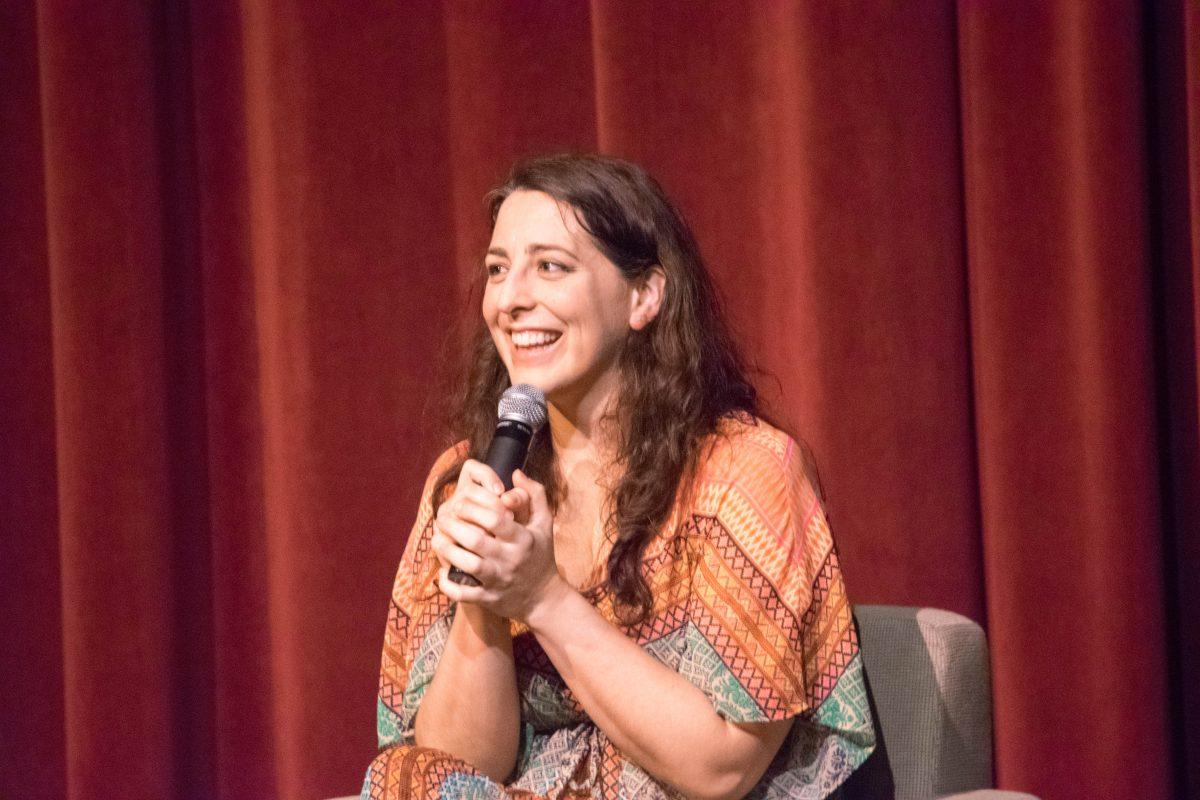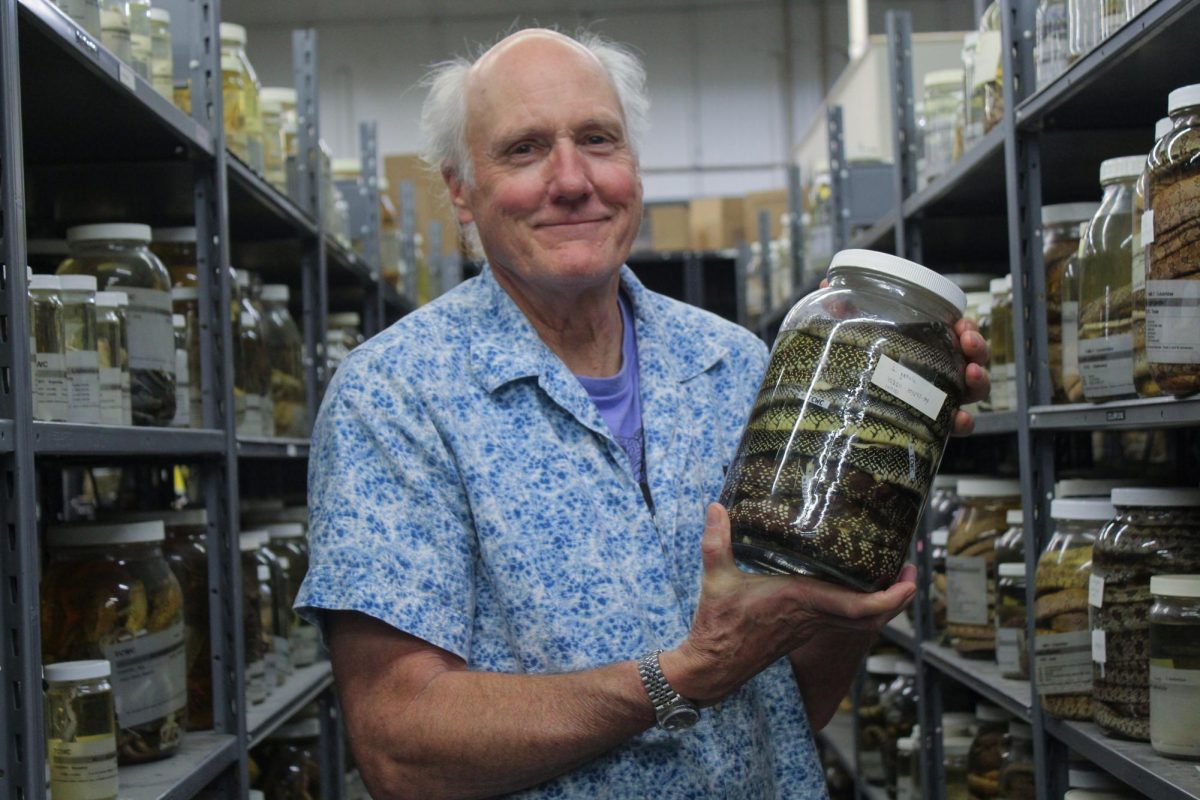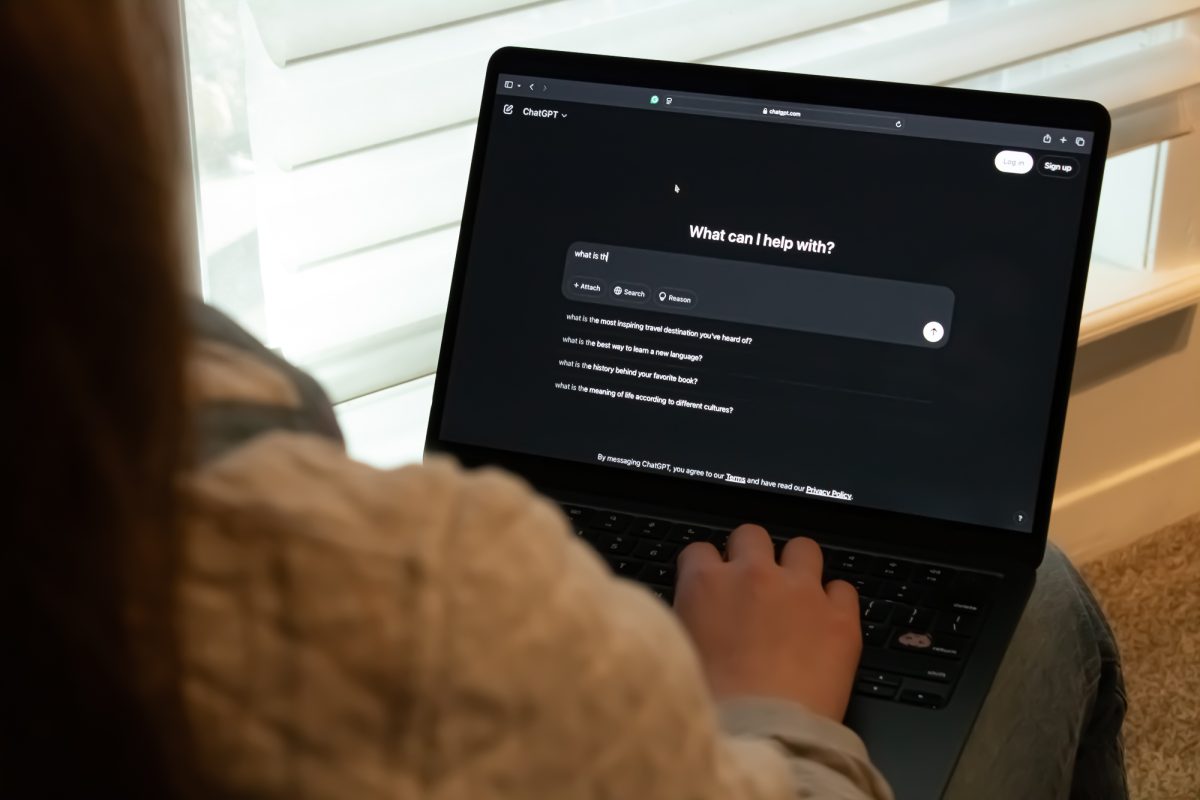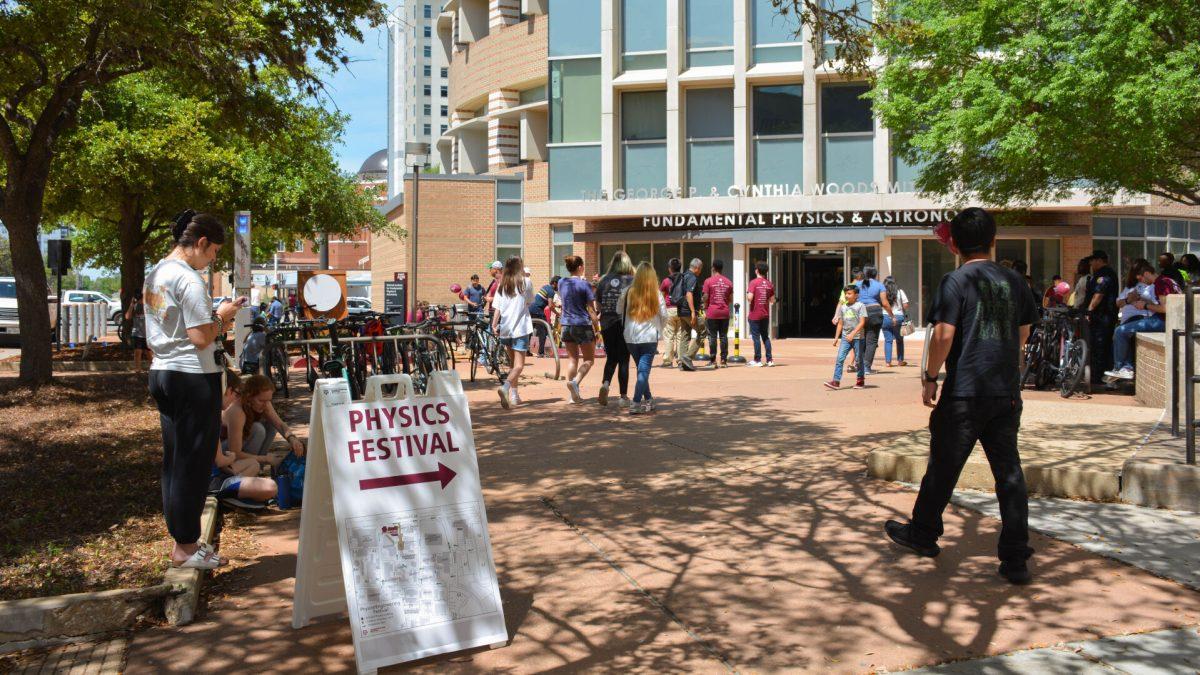Cushing Memorial Library and Archives kicked off their 2018 Halbert W. Hall Speakers Series on Science Fiction and Fantasy with a talk from lecturer, playwright, essayist and noted science fiction author Monica Byrne last Friday, Feb. 2.
The event began at 5:30 p.m., with many students arriving with copies of Byrne’s previous book “The Girl in the Road” on hand.
The speakers chosen for the series discuss a number of different issues, using their career in science fiction and fantasy as a jumping off point, according to Jeremy Brett, science fiction and fantasy curator and series organizer.
“We are really open to anybody who is a science fiction creator,” Brett said. “What you talk about is totally your business. We’ve already had three speakers and they have all talked about very different things.”
Byrne’s talk was entitled “Instructions for The Age of Emergency” and was related to her six-year project and forthcoming book “The Actual Star.”
“The novel jumps back and forth from the distant past, during the collapse of the Ancient Mayan civilization, to the present, specifically the year 2012, to the far future, when a new global religion has brought a lasting peace to humankind,” Brett said. “So I spent a lot of the past year in the year 3012, in my head, trying to imagine what the world would look like a thousand years from now.”
Byrne said the book, though set in the future, is a response to the present moment, like most science fiction. Byrne focused on the 2016 United States presidential election and spoke about her experience writing the book over the course of the last two and a half years, exploring the question of how societies reach such socio-politically uncertain times.
Her solution to the present social systems, which also forms the the foundation of the fictional world she created, is the idea of radical empathy. She postulates on how a society built on complete mutual selfless giving, which she compared to population responses during disasters, would remold and remake mankind’s relation to the world and, more fundamentally, to each other.
One of the more stark consequences of her thought experiment, as she explains, is a massive proliferation in social identities — 1,500 to be exact — and the resulting irrelevancy of traditional concepts such as the nation-state, family and kinship ties and organized religion.
“I liked [the talk] really well,” Brett said. “Monica is really wise. She’s really smart. She had a lot to say. She’s very driven. I think the questions from the audience were good. It’s clear everybody was engaged. So I think it went really well.”
The probing questions raised about identity seemed to have been the most intriguing to audience members, at least those who asked questions during the Q&A session. Heathryn Livingston, an english junior and student archivist at the Bush Library said she came away enthused at the picture of inclusion as portrayed in the book and especially as it relates to modern society.
“I think the idea of utopia versus dystopia and the different ways that we view our world and how that affects the way that the world works is something that we just don’t ever think about,” Livingston said. “And when you do start going down that rabbit hole, there’s a lot of stuff that we can fix by just changing our perspective perspective.”
Former Cushing curator, science fiction scholar and bibliographer Halbert W. Hall, after whom the speaker series is named, attended Byrne’s talk and expressed his pleasure that the Science Fiction and Fantasy Collection at Cushing Memorial Library and Archives, which he launched in the 1970s, continues to provide new ways for Texas A&M students, faculty and researchers to enjoy the wonders of science fiction and fantasy.
Hall’s connection to A&M goes as far back as 1932 when his older brother, who would later be killed in action while serving in World War II, graduated from the university.
According to the Cushing Library, since Hall’s initial contribution, the Science Fiction and Fantasy Research Collection at Cushing Library is one of the largest of its kind in the world. It holds thousands of books, monographs, serials and other collections ranging from 17th-century works of proto-science fiction to the most recent titles of significance.
The Halbert W. Hall Speaker Series is part of a larger effort by the Cushing Library to find new ways to engage with the Texas A&M community as tastes and consumption patterns change. The speaker series adds to a growing list of programs that includes the “Worlds Imagined: The Maps of Imaginary Places” Collection, The Human Library Project and The Old Lesbian Oral Herstory Project.
“We are very conscious of [the changing format of Cushing programs] and very intentional in doing it,” said Francesca Marini, Cushing Memorial Library & Archives Director. “We’re really trying to get our material seen. Our special collections are there to be used. They’re there for people to interact with. And we’re really trying to do a lot of programming and outreach and going out and reaching people.”
Author Monica Byrne speaks at Cushing Library Science Fiction Series
February 4, 2018
0
Donate to The Battalion
$2065
$5000
Contributed
Our Goal
Your donation will support the student journalists of Texas A&M University - College Station. Your contribution will allow us to purchase equipment and cover our annual website hosting costs, in addition to paying freelance staffers for their work, travel costs for coverage and more!
More to Discover










